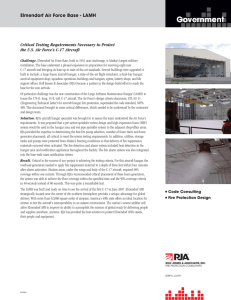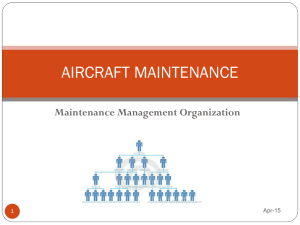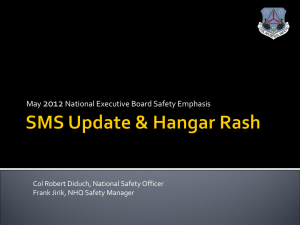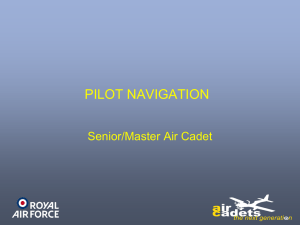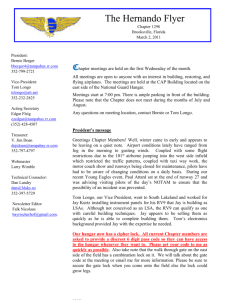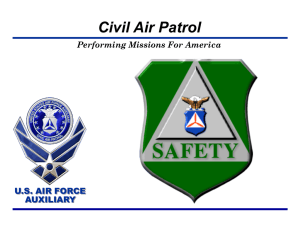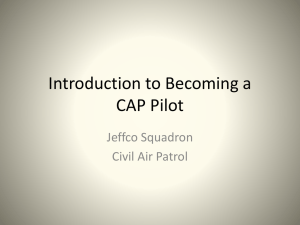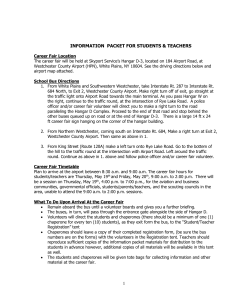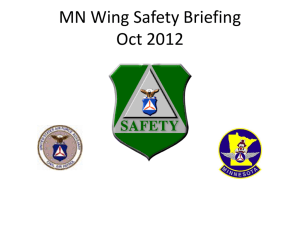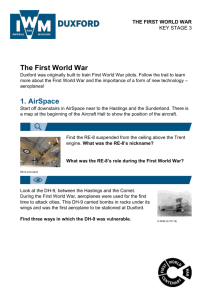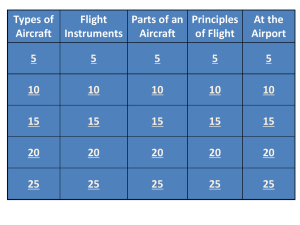Hangar Maintenance
advertisement
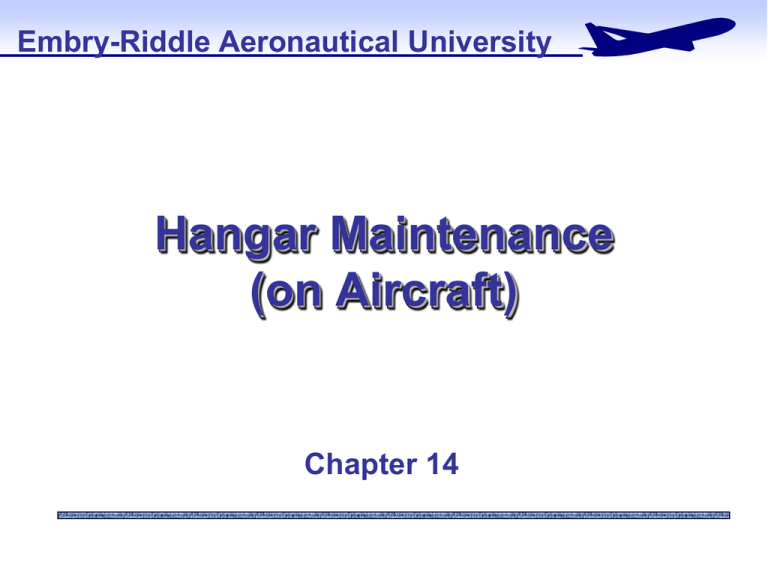
Embry-Riddle Aeronautical University Hangar Maintenance (on Aircraft) Chapter 14 Hangar Maintenance (on Aircraft) Introduction Organization of Hangar Maintenance Problem Areas in Hangar Maintenance Non-routine Items Parts Availability Parts robbing (cannibalization) Maintenance Support Shops Ground Support Equipment (GSE) Summary Introduction Hangar Maintenance refers to that done when aircraft is out of service Scheduled checks above “A” (i.e. C, D etc.) Modifications to aircraft or systems by SB, AD, or EO Special inspections required by airline, FAA, or operational conditions Painting of aircraft Aircraft interior modifications Introduction PP&C schedules the activities & coordinates with Ops & maintenance activities, materiel etc.. Hangar shops, supply points, parts storage, aircraft parking (esp. type/model/series), tools & GSE Hangar space adequate, & hangar maintenance must be planned, scheduled, & controlled to ensure work is completed on time…TIME is MONEY Organization of Hangar Maintenance Hangar Maintenance is a position under director of aircraft maintenance Aircraft maintenance Responsible for all hangar maintenance activities – Controls flow of aircraft into & out of check, maintenance crews, coordinates with overhaul & support shops, materiel, PP&C, flt line maintenance & OPS regarding aircraft in hangar GSE and facilities All GSE required, & hangar facilities & flt line maintenance Support Shops Welding shops, avionics, engine, mechanical, upholstery, seats & interior Problem Areas in Hangar Maintenance Non-routine Items Routine Maintenance has a fixed amount of time & are listed in the Maintenance Planning Document (MPD) ASSUMES all will go well with no delay or maintenance induced problems etc.. Non-routine (unscheduled) requires best “guess-timate” & need to keep PP&C in the loop The time will be noted for future performance of “like” non-routine tasks..important for planning purposes Parts Availability Must have a parts staging area & plan ahead for the “out-ofservice” maintenance Parts ordering, pick up & delivery needs to be efficient to minimize down time of maintenance crews… Problem Areas in Hangar Maintenance Parts Robbing (cannibalization) Necessary evil in maintenance Mission oriented – must always deliver airworthy vehicles to Ops to meet the flight schedule Rules to consider: Cannibalization should be discouraged unless necessary Parts must be ordered even if part is available on another aircraft Only be performed with consent of management and approval of director of maintenance responsible for both aircraft Always try to reduce the redundancy of labor Maintenance Support Shops These support shops don’t require FAA licenses refurbish or repair aircraft panels Fabrics & interior shops Aircraft seat shops Work is NOT directly part of the scheduled maintenance although an intricate part May be required by work card, SB, AD, or EO Ground Support Equipment (GSE) “that equipment that is required to support the operation & maintenance of the aircraft & all its airborne equipment” Two basic categories: Equipment to support servicing & handling of operational aircraft while engaged in flight turnaround & ground movement activities Equipment used to facilitate maintenance at turnaround, scheduled or unscheduled downtime Pg 161 list of equipment & usage Must procure GSE & tooling appropriate for new type/model/series – 9 – 12 months prior Acquire type & level of maintenance to be performed, # of multiple units, GSE personnel is responsible for general maintenance & upkeep of GSE (PMs, MRCs, licensing etc.) Hangar Maintenance (on Aircraft) Introduction Organization of Hangar Maintenance Problem Areas in Hangar Maintenance Non-routine Items Parts Availability Parts robbing (cannibalization) Maintenance Support Shops Ground Support Equipment (GSE) Summary Questions?
